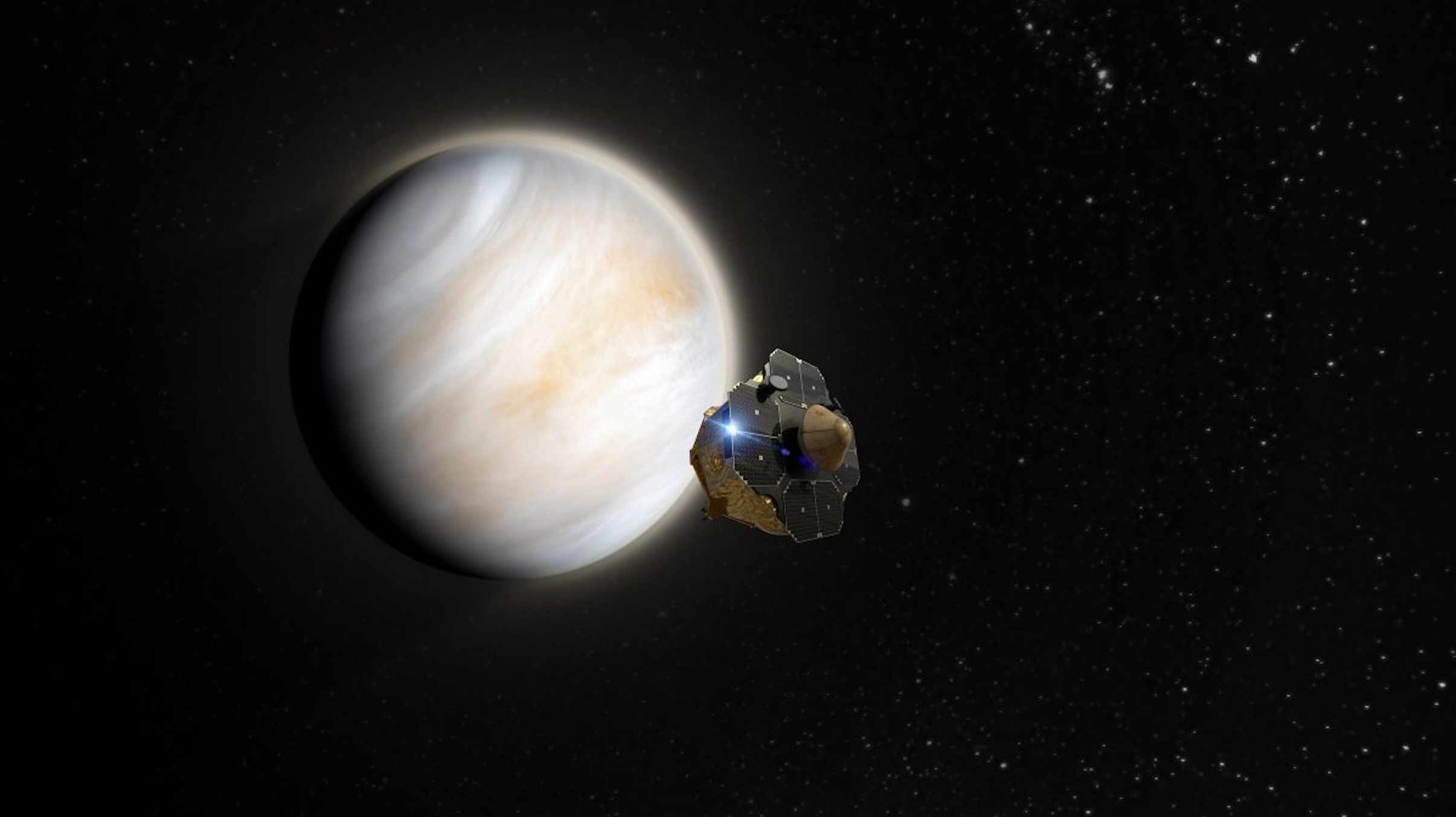1st-ever private Venus mission delayed until at least 2025
Rocket Lab had aimed to launch the mission this year.

The first private mission to Venus won't launch this year after all.
The Rocket Lab mission, which was initially set to launch last month, has been delayed until at least January 2025, TechCrunch reported.
"Our focus right now is on delivering customer missions as a priority," a Rocket Lab spokesperson told the website, without offering a detailed explanation for the delay. January 2025 was the original backup launch window for the Venus probe, according to the MIT Technology Review.
Related: Here's every successful Venus mission humanity has ever launched
Rocket Lab announced its planned Venus mission in August 2020, then fleshed out its architecture in a paper published in the journal Aerospace two years later. The primary goal is to investigate the Venusian atmosphere to search for conditions needed for life to exist.
Venus, the hottest planet in the solar system, is generally considered a hellscape, with surface temperatures hot enough to melt lead. But some clues have emerged indicating that microbial life might be able to exist high in Venus' skies, where conditions are more Earth-like.
In 2020, researchers discovered signs of phosphine in the clouds of Venus. This created quite a stir, because here on Earth, this colorless, flammable toxic compound is found in swamps and other locations as a byproduct of microbial life.
Breaking space news, the latest updates on rocket launches, skywatching events and more!
"I've always felt that Venus has got a hard rap," Rocket Lab founder and CEO Peter Beck said last year while talking about the mission. "The discovery of phosphine was the catalyst. We need to go to Venus to look for life."
The purported Venus phosphine find — a claim that remains disputed today — helped renew scientific interest in the second planet from the sun. For example, NASA is developing two Venus missions, DAVINCI and VERITAS, set to launch in the late 2020s and early 2030s.
The probe proposed by Rocket Lab, a California-based launch company, would get to Venus before those NASA spacecraft and also be much cheaper. The mission is funded by Rocket Lab, the Massachusetts Institute of Technology (MIT) and undisclosed philanthropists and is estimated to cost just $10 million. This is just 1% of the estimated combined cost for both of NASA's coming Venus missions.
The probe will also be diminutive, measuring 15 inches (38 centimeters) across, just a bit larger than a basketball hoop, and weighing a mere 45 pounds (20.4 kilograms). The tiny Venus probe will leave Earth on Rocket Lab's Electron rocket and will then be carried to the hellish planet by the company's Photon spacecraft bus.
The probe's journey to Venus will be brief, lasting just five months, but its data collection period will be even shorter. The probe will have just three to five minutes to collect data as it plummets from an altitude of 37 to 28 miles (60 to 45 km) in Venus' atmosphere, the region in which scientists saw signs of phosphine in 2020.
The probe won't search for that chemical but will hunt for other complex organic molecules, measuring their composition, concentration and shapes during its nightmare descent. This data will be beamed back to Earth before the crushing pressures and blistering temperatures at the surface of Venus destroy the probe.
The detection of organic molecules wouldn't prove that microbial life exists in the clouds of Venus. But it could indicate that this hellish world is more hospitable than previously believed.

Robert Lea is a science journalist in the U.K. whose articles have been published in Physics World, New Scientist, Astronomy Magazine, All About Space, Newsweek and ZME Science. He also writes about science communication for Elsevier and the European Journal of Physics. Rob holds a bachelor of science degree in physics and astronomy from the U.K.’s Open University. Follow him on Twitter @sciencef1rst.
